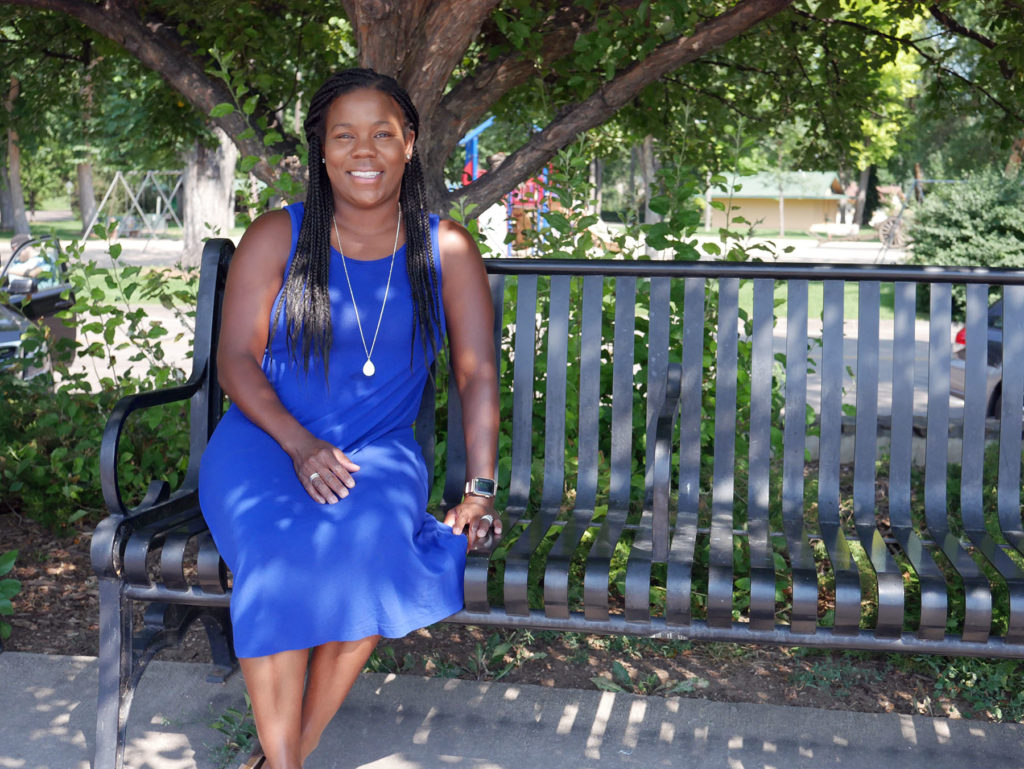
Walter Scott, Jr. College of Engineering Assistant Dean for Diversity and Inclusion Melissa Burt has been chosen for two unrelated National Science Foundation-backed honors. On July 21, she was named an IAspire Leadership Academy Fellow. She also recently was appointed to a National Academies of Sciences, Engineering, and Medicine committee that will provide guidance to the NSF.
Burt applied for the leadership academy, but the committee assignment took her by surprise.
The study committee is tasked with advising the NSF on how to conduct Earth studies using an interdisciplinary approach.
“I’m honored to be a part of this exceptional committee, to really think through the process of how we can study the Earth in a more interdisciplinary way,” said Burt, who is also a scientist in CSU’s Department of Atmospheric Science.
In serving the committee, Burt will draw upon both her atmospheric science research background and experience in incorporating diversity, equity and inclusion into institutional systems.
“From my perspective, it’s really thinking about diversity and inclusion in the workforce, and how does that fit in to the ways we study the Earth,” she said.
Training change leaders
Burt looks forward to the personal development she will gain from the IAspire Leadership Academy and connecting with others across STEM disciplines who share her passion for diversity, equity and inclusion.
“I’m also honored to be a part of a small cohort of individuals who are distinguishing themselves as leaders in STEM,” she said. “I’m excited to be around that sort of energy.”
The IAspire leadership program aims to broaden diversity and increase inclusion in STEM fields and higher education leadership. The NSF-supported alliance behind the initiative selected 24 participants through a competitive, blind holistic review. Fellows will learn executive leadership skills for higher education environments and strategies for influencing institutional change.
‘We have to start small’
Changing institutional culture is no easy task. Burt’s position was created two years ago to help guide the college in its diversity, equity and inclusion goals, though her work on diversity and inclusion initiatives began a decade earlier in the Department of Atmospheric Science.
In her home department, Burt led successful NSF Research Experiences for Undergraduates programs and cultivated relationships with faculty at minority-serving institutions. She has expanded those efforts across the college, improving recruitment of undergraduate students of color and first-generation students.
“Dr. Burt has made exceptional contributions to advancing inclusivity here at CSU and within national organizations,” Dean David McLean said. “In her leadership roles within the Earth Science Women’s Network (ESWN) and the American Meteorological Society (AMS), she is continually leading new initiatives to empower younger scientists and also to facilitate difficult discussions on equity.”
Burt’s position enables consistent and centralized efforts across the college and acts as a link to the university’s programs. She worked with college leadership to develop a Diversity Strategic Plan, and she is supporting the departments in their implementation of plan goals and actions.
Last year, Burt presented workshops for faculty on how to foster inclusive environments in their classrooms, as well as a workshop for faculty and staff about addressing sexual harassment in the workplace.
“It’s really just approaching it from, ‘how can we do things differently to make it beneficial for all people?’ ” she said.
Work to do
Burt is encouraged that people are recognizing the need to correct systemic issues. Now is the time to get to work.
“To fully incorporate diversity, equity, inclusion and justice into the college culture, it has to be a collective effort,” she said. “It has to be threaded into the fabric of everything we do.”
That includes teaching, research and service. It means not just recruiting and retaining more students, faculty and staff from underrepresented groups, but making sure they can succeed and feel they belong.
How will the college know if the culture has changed and our environment is inclusive?
“When everyone feels that they belong, are valued, are heard, and they can be their true, authentic self – their whole self. It’s when people’s actions speak louder than their words.”